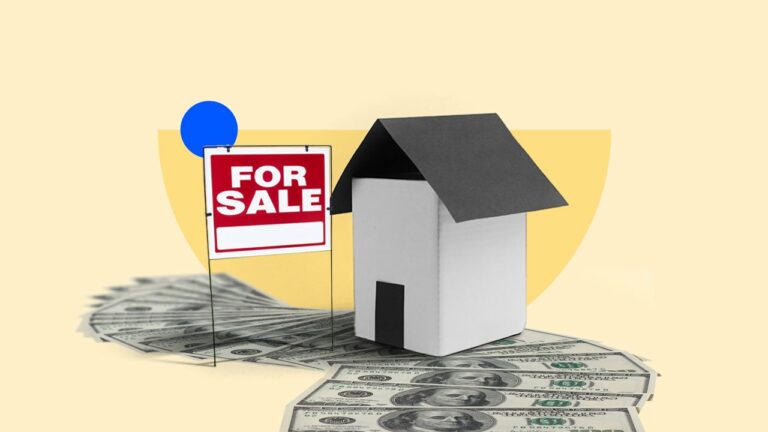Key takeaways
Selling a house can take several months from start to finish, so it’s crucial to plan ahead and stay organized.
Start by setting a timeline to stick to and hiring a local real estate agent who knows your market well.
Be sure to get professional-quality listing photos taken — National Association of Realtors data shows that 100 percent of homebuyers look at listings online.
Most home sellers dream of a stress-free sale in which they simply list their house, quickly find a qualified buyer, collect the cash and hand over the keys. If only it were that simple! In reality, selling a home involves many moving parts — some that you can control, and some that are out of your hands.
For example, geography might influence how long your house lingers on the market or how high of a list price you can get away with. In locations where competition is hot and inventory is low, odds are you’ll sell faster and command a higher price. Conversely, in places where home sales have cooled, you will likely have to work harder to attract the right buyer.
The real estate market has shifted significantly since the frenzied heights of the pandemic. Today, high prices are combining with high interest rates to create serious affordability challenges: The median price for a home is more than $400,000, and mortgage rates hit a 22-year high in 2023. It’s no wonder many buyers have little choice but to stay on the sidelines until either rates or prices (or both) come down.
So, as a seller, it’s smart to be prepared and control whatever factors you’re able to. Things like hiring a great real estate agent and maximizing your home’s online appeal can translate into a smoother sale — and more money in the bank. Here’s a nine-step guide to how to sell your house successfully.
Set a timeline: Start prepping your home well before you plan to list.
Hire an agent: An experienced agent who knows the market well can best position your home for local buyers.
Determine upgrades: Take on only projects your house really needs — you don’t have to upgrade everything.
Set a realistic price: Your agent can help you find the sweet spot.
List with pro photos: Buyers look at homes online first, so be sure you have a solid digital presence.
Review offers: Consider all factors, not just the highest dollar amount.
Weigh closing costs: Keep track of how much more you’ll need to pay at the closing table.
Consider an attorney: Legal expertise can help protect this significant financial transaction.
Close: Make sure you have all your documentation ready.
1. Set a timeline for selling your home
Selling a house is a major undertaking that can take several months from start to finish — or much longer, depending on local market conditions. So it makes sense to plan ahead and stay organized.
At least two or three months before you plan to list, consider getting a pre-sale home inspection. This isn’t mandatory, but it can be wise, especially in an older home. For a few hundred dollars, you’ll get a detailed inspection report that identifies any major problems. This alerts you in advance to issues that buyers will likely flag when they do their own inspection later. By being a couple steps ahead, you might be able to speed up the selling process by doing needed repairs in tandem with other home-prep work. Then, by the time your house hits the market, it should be ready to sell, drama-free and quickly.
About a month before listing your house, start working on deep cleaning in preparation for taking listing photos. Keep clutter to a minimum, and consider moving excess items to a storage unit to show your home in its best light.
2. Hire an agent who knows the market
The internet makes it easy to delve into a real estate agent’s experience, helping you choose the right person to work with. Look up agents’ online profiles to learn how long they’ve been in the industry, how many sales they’ve closed and what professional designations they may have earned. Pay attention to how and where they market their listings, and how professional their listings’ photos look.
“Any designation they’ve earned is a huge plus, because it’s a sign they’ve taken the time to learn about a particular niche,” says Jorge Guerra, president and CEO of Real Estate Sales Force in Florida.
Some homeowners might be tempted to save on paying a commission and instead sell their home themselves, without an agent. This is known as “for sale by owner,” or FSBO. The amount sellers stand to save on that fee can be significant, usually 2.5 percent or 3 percent of the total sale price. On a $400,000 home sale, for example, 3 percent comes to $12,000.
Keep in mind: Real estate commissions are often negotiable.
However, a listing agent does a lot to earn their fee. For example, they can expose your house to the broadest audience and negotiate on your behalf to garner the best offers possible. If you go it alone, you’ll have to personally manage prepping your home, marketing it, reviewing buyers’ offers and handling all the negotiations and closing details.
When working with an agent, keep in mind too that real estate commissions are often negotiable. As a result, you might be able to get a break at the closing table. But, depending on the deal, you may still have to pay your buyer’s agent’s fee.
3. Determine what to upgrade — and what not to
Before you spend money on costly upgrades, be sure the changes you make will have a high return on investment. It doesn’t make sense to install new granite countertops, for example, if you only stand to break even on them, or even lose money. Plus, these improvements may not be necessary, particularly if inventory levels are low in your area (which they are in most areas these days). A good real estate agent will know what local buyers expect and can help you decide what needs doing and what doesn’t.
Keep in mind: Inexpensive DIY projects can also go a long way. A fresh coat of neutral paint and spruced-up landscaping are low-cost ways to make a great first impression.
Updates to the kitchen and bathrooms often provide the highest return on investment. But inexpensive DIY projects can also go a long way: A fresh coat of neutral paint and spruced-up landscaping are low-cost ways to make a great first impression.
4. Set a realistic price
Even in competitive markets, buyers don’t want to pay more than they have to, so it’s crucial to get the pricing right. Going too high can backfire, while underestimating a home’s value might leave money on the table. To price your home perfectly from the start, consult local real estate comps. This information about recently sold properties in your neighborhood gives you an idea of what comparable homes around you are selling for, thus helping you decide how much you might reasonably ask.
“A frequent mistake sellers make is pricing a home too high and then lowering it periodically,” says Grant Lopez, a Realtor at Keller Williams Heritage in Texas and the former chairman of the San Antonio Board of Realtors. “Some sellers think this practice will yield the highest return. But in reality, the opposite is often true: Homes that are priced too high will turn off potential buyers, who may not even consider looking at the property.”
In addition, homes with multiple price reductions may give buyers the impression there’s something wrong with it. So it’s best to eliminate the need for multiple reductions by pricing your home to attract the widest pool of buyers from the start.
5. Include professional listing photos
This step will likely involve your real estate agent hiring a photographer to take marketing photos of your home, and registering the listing with the local MLS (multiple listing service). Here are some tips to get your home market-ready:
Keep in mind: You’ve probably heard of curb appeal, but pros say online appeal is now even more important.
Take professional photos: With the ubiquity of online house-hunting these days, high-quality photos are critical. A pro photographer knows how to make rooms appear bigger, brighter and more attractive. The same goes for the property’s exterior and outdoor areas.
Focus on online appeal: You’ve probably heard of curb appeal, but professionals say online appeal is now even more important. In fact, 100 percent of homebuyers use the internet to search for a home, according to the National Association of Realtors, so online listings are crucial. “Your home’s first showing is online,” Guerra says. “The quality of your web presentation will determine whether someone calls and makes an appointment or clicks on the next listing.”
Stage it and keep it clean: Staging a home entails removing excess furniture, personal belongings and unsightly items from the home and arranging rooms for optimal flow and purpose. If you’re in a slower market or selling a luxury home, investing in a professional stager could help you stand out. Nationally, professional home staging costs an average of around $1,808, according to HomeAdvisor, but prices range between $792 and $2,840.
Clear out for showings: Make yourself scarce when potential buyers come to view your home. Let them imagine themselves in the space, free from distraction. “Seeing the current homeowner lurking can cause buyers to be hesitant to express their opinions,” says Lopez. “It could keep them from really considering your home as an option.” Generally, buyers are accompanied by their real estate agent to view your home. You can also ask your own agent to be present at showings.
6. Review and negotiate offers
Once buyers have seen your home, offers will ideally start rolling in. (Keep in mind, though, that with mortgage rates currently high, the number of buyers who can still afford to buy might be smaller than you’d like.) This is where a real estate agent is your best advocate and go-to source for advice. If your local market favors sellers, buyers will likely offer close to asking price, or possibly even above. On the other hand, if sales are slow in your area, you may have to be open to negotiating.
When you do receive an offer, you’ll have a few choices: accept it, make a counter-offer or reject the offer. A counter-offer is a response to an offer in which you negotiate on terms and/or price. You can offer a credit for fresh paint and carpet, for example, but insist on keeping your original asking price in place. Counters should always be made in writing and provide a short time frame (ideally 48 hours or less) for the buyer to respond.
Keep in mind: You might be tempted to simply go with the highest bid, but look closely at other aspects of the offer, too.
If you’re lucky enough to get multiple offers, you might be tempted to simply go with the highest bid. But look closely at other aspects of the offer, too, such as:
Form of payment (cash versus financing)
Type of financing
Down payment amount
Contingencies
Concession requests
Proposed closing date
Be mindful that if a buyer is relying on lender financing, the property will have to be appraised. If there’s any shortfall between the purchase price and appraised value, that gap will have to be made up somehow, or the deal could fall apart.
7. Weigh closing costs and tax implications
In any real estate transaction, both parties must pay at least some closing costs. It has long been the custom that the seller pays the real estate agents’ commissions, which usually total between 5 and 6 percent of the home’s sale price. This can be a big chunk of change: For example, on a $400,000 home, 5 percent comes to $20,000. However, that may soon change due to a federal lawsuit, and as of late summer, homebuyers may pay their own agent’s commission.
Some other closing costs commonly paid by the seller include transfer taxes and recording fees. Additionally, if the buyer has negotiated any credits to be paid at closing — to cover repairs, for example — the seller will pay those, too. Your real estate agent or the closing agent should provide you with a complete list of costs you’ll be responsible for at the closing table.
The good news is that you may not owe the IRS taxes on your profits from the sale. It depends on whether it was your primary residence, how long you lived there and how much you make on the sale. If you’ve owned and lived in your home for at least two out of the previous five years before selling it, then you will not have to pay taxes on any profit up to $250,000. For married couples, the amount you can exclude from taxes increases to $500,000. If your profit from the home sale is greater than that, though, you’ll need to report it to the IRS as a capital gain.
8. Consider hiring a real estate attorney
Some states require sellers to have a real estate attorney to close on a home sale, but many don’t. Regardless of your state’s laws, the expense is worth it to protect such a large financial transaction. It may cost you a couple thousand dollars, but there’s a lot more money than that at stake, and it’s always smart to have a legal expert give everything the OK.
Keep in mind: Even if your state doesn’t require you to hire a real estate attorney, it’s worth the expense to protect such a large financial transaction.
In addition, an attorney can help fill out paperwork correctly, review contracts and documents, identify potential issues and ensure the sale goes as smoothly as possible. If you’re not sure where to find one, your real estate agent can probably recommend someone.
9. Gather paperwork and close
Lots of paperwork is needed to properly document a home sale, so keep it organized all in one place to help things go more quickly. Your agent can help you make sure you’ve got everything you need. Some of the main documents you’ll need to compile include:
Original purchase contract
Property survey, certificate of occupancy and certificates of compliance with local codes
Mortgage documents
Tax records
Appraisal from your home purchase
Homeowners insurance
Home inspection report, if you had one
Seller’s disclosure statement
Finally, bring all that paperwork — plus payment of any fees and the keys to give the new owners — to the closing. Once everything is signed and handed over, your house is sold!
FAQs
What should I do first when selling my house?
Putting your home on the market is a major step, and like most big life decisions, it’s best to get organized before you dive in. The process can take several months, so once you decide you want to sell, the best thing to do first is to consider your timeline. When do you need to move? What date do you hope to be closed by? Make sure you give yourself enough time to prep the property for showings and find a real estate agent you trust before actually putting the home on the market.
What is the fastest way to sell my house?
Do I need a lawyer to sell my house?
That depends on what state you live in. Some states require a real estate attorney to manage any sale transaction, some don’t. Even if it’s not a legal requirement, though, consider hiring one anyway — real estate contracts can be very complicated, and there is a lot of paperwork involved and a lot of money at stake. It’s worth the cost to have legal expertise looking out for your interests.
Do I need a Realtor to sell my house?
No. It’s perfectly possible to sell a home on your own with what’s called a for sale by owner (FSBO) listing. However, going without a real estate agent means all the work an agent would normally do — researching comps, determining the best list price, coordinating showings, negotiating with potential buyers — is up to you to do yourself. It’s a lot of work, and a big time commitment.
This article was originally published by a www.bankrate.com . Read the Original article here. .



